Israeli Scene
Feature
What Will Israel Look Like at 100?
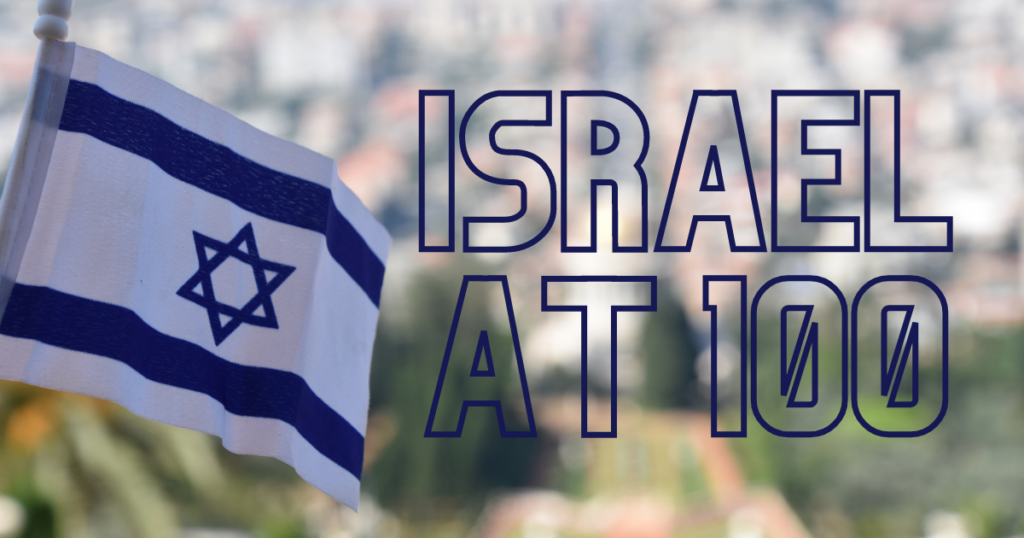
“What is Zionism?” It’s the first question I pose when speaking to Israeli audiences. The answers are often inspiring: “the realization of a 4,000-year-old dream” or “the national liberation movement of the Jewish people.” But my own definition is far simpler. Zionism, I explain, means Jews taking responsibility for ourselves. Zionism means Jews taking responsibility for our electricity and sewer systems, our foreign policy and defense. Above all, Zionism means Jews taking responsibility for our future. That is precisely the responsibility we are today largely abnegating.
This wasn’t always the case. In the 60 years between the establishment of the first Zionist settlements in Eretz Yisrael in 1882 and Israel’s creation in 1948, Jews engaged in vibrant discussions about the nature of their future state. Will it be a “normal” nation distinguished only by its Jewish majority or a country whose ideals and institutions are inherently Jewish? Will it be the national home of all Jews everywhere or a state solely of its citizens? Will it be socialist or free market, an autocracy or a democracy, secular or religious? Far from merely rhetorical, these debates helped forge the educational, material and military foundations of Israel. More than by force of arms, the country’s independence was achieved through the power of words.
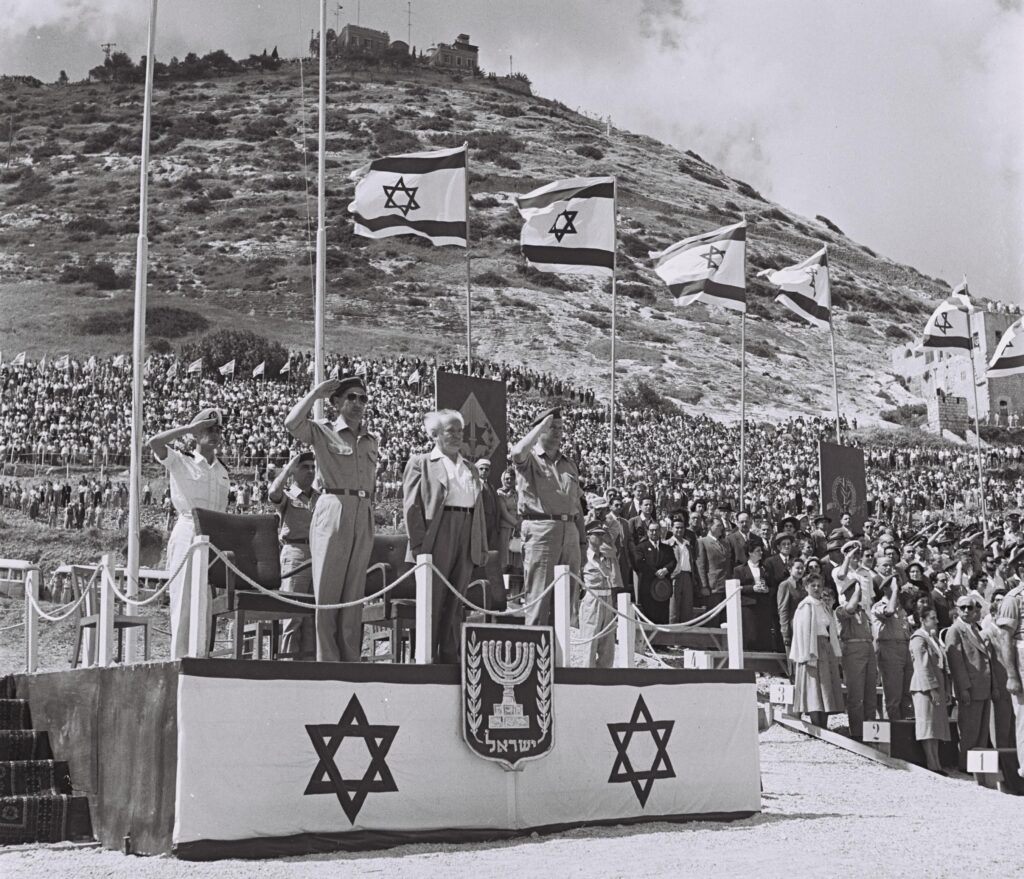
By taking responsibility themselves, Israel’s founders provided the state with the conceptual and institutional means to overcome seemingly insurmountable obstacles, to not only survive but thrive. Emerging a mere three years after the Holocaust, Israel absorbed Jewish refugees from 70 countries, created a flourishing Hebrew culture, an innovative economy and an army larger than France and Britain’s combined. Israel is one of the few democracies never to have known a second of non-democratic rule.
According to any international criteria—per capita gross domestic product, average longevity, citizen satisfaction, universal health care, higher education, environmental protection, free press, effective judiciary, water reclamation, energy export, bilateral diplomatic ties—Israel is miraculous.
And yet Israel now faces challenges that not only threaten our past successes but also our long-term viability. It is the only state in which more than a quarter of its parliamentarians refuse to sing the national anthem or to salute the flag, a state in which there is conscription into the military but more than half the population does not serve. It is the only state that faces existential dangers but whose right to defend itself is often denied. Israel also suffers from a chronic brain drain, the stagnation of peripheral areas outside of Greater Tel Aviv and the alienation of large minority groups.
The quality of pre-university education has deteriorated, hospitals suffer from a shortage of beds, and public confidence in the legal and political systems has plummeted. Israel claims to represent a global Diaspora but refuses to recognize the Reform and Conservative affiliations of many of its members. And Israel’s control over Palestinians in the disputed territories endangers our identity as a Jewish and democratic state.
Magazine Discussion Group Featuring Michael Oren!
Addressing these issues is our responsibility as Zionists. We must ask ourselves how we can build on our extraordinary accomplishments and assure equality and prosperity for all? How can we improve the effectiveness of our army and the integrity of our national institutions while renewing our commitment to the Jewish people everywhere? Which policies must Israel adopt to enable it to influence international affairs and preserve its technological edge? How, moreover, can Israel grow into a more just, moral and ultimately more Jewish state? These are the questions that Jews both in Israel and abroad must begin to answer. What do we want Israel to look like on its 100th birthday, a mere 27 years away?
Such a conversation requires an interactive framework that does not yet exist. To fill that gap, while serving as a Knesset member and deputy minister in the Prime Minister’s Office from 2015 to 2019, I mounted an initiative called Israel 2048. The goal was to establish a government commission to study the policies necessary to ensure Israel’s future. Unfortunately, fearing the commission’s findings on such sensitive issues as conversion and the peace process, the Prime Minister’s Office shied away from the project. Yet I continued it, first with Natan Sharansky at the Shalom Hartman Institute, and now with a new nongovernmental organizational, Israel 2048. The objective, however, remains the same: to stimulate an open conversation—similar to that which preceded Israel’s founding—among Israelis of all ages and between them and Diaspora Jews.
To start the conversation, I composed a collection of essays—which will soon be available in book form—each dealing with a crucial field. The first of these addressed an issue virtually unknown to most Diaspora Jews but is increasingly pressing for Israelis: the future of the Israel Defense Forces. Israelis are justifiably proud of the IDF’s size, prowess and esprit de corps. They appreciate the central role the army has played in immigrant absorption, in settling the land through its Nahal agricultural corps and in forging a national identity. Yet an increasing number of Israelis, including some former high-ranking officers, are calling for transforming the IDF into a professional army similar to that of the United States.
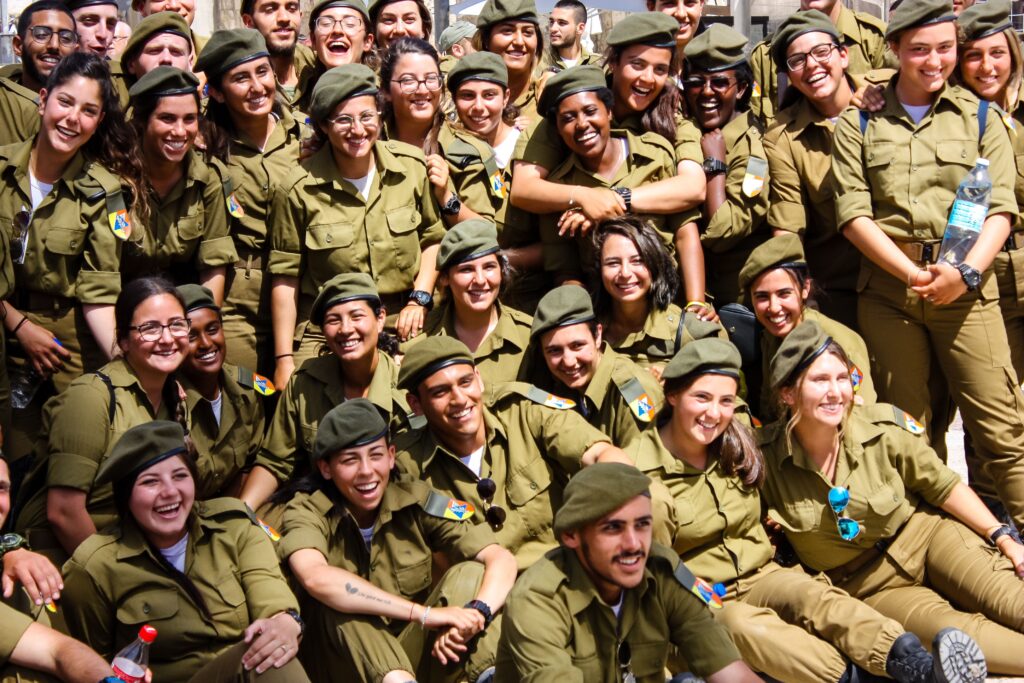
With more than half of the population not serving for religious or health reasons, they claim, the citizens’ army has become a myth. They propose that the IDF enlist willing recruits and pay them a respectable wage, doing away with conscription.
These arguments have appeared in leading Israeli journals and served as the focus of several academic conferences. While the idea of privatizing the IDF might seem compelling, I believe its adoption would prove catastrophic. Military ranks would quickly fill with the marginalized and disadvantaged. Battles would be fought by soldiers barely out of basic training rather than by experienced reservists. The check on military adventurism currently posed by an Israeli public invested with its parents and children serving in the IDF would all but disappear. The IDF would no longer necessarily absorb immigrants, assist disadvantaged communities or serve as a melting pot, and it would cease being the incubator for innovation as it is today. Engineers and computer experts would not be likely to opt for the military when they could lucratively work for Apple. The “start-up nation” would rapidly stand down.
Rather than transform the IDF, I believe that Israel must reinforce its commitment to national service, educating youth of its importance and creating opportunities for all Israelis, including the ultra-Orthodox and Arabs, to contribute. The question is how to make the IDF more, not less, of a true citizens’ army.
Another topic is one more familiar to Americans than Israelis: the struggle for minority rights. Israel’s relations with its Arab minority is an immensely complex issue but one that must be addressed comprehensively. Doing so, I believe, requires a revolutionary approach, which I have termed Israel’s New Deal.
Comprising 21 percent of the Israeli population, Arabs in recent years have made great progress socially and economically. According to a Tel Aviv University study, Christian Arabs, who represent some 7 percent of Israeli Arabs, are on average better educated and more affluent than Israeli Jews. A small but growing majority of Israeli Arabs now express pride in being Israeli citizens. During the coronavirus crisis, Arab physicians and nurses moved the Jewish public with their professionalism and courage. Israeli Arabs who once protested the presence of the police in their communities now demonstrate for a greater police presence, while a growing number of their leaders seek integration, rather than confrontation, with Israeli society. And yet most Jewish Israelis still view their Arab countrymen and women as something of a threat.
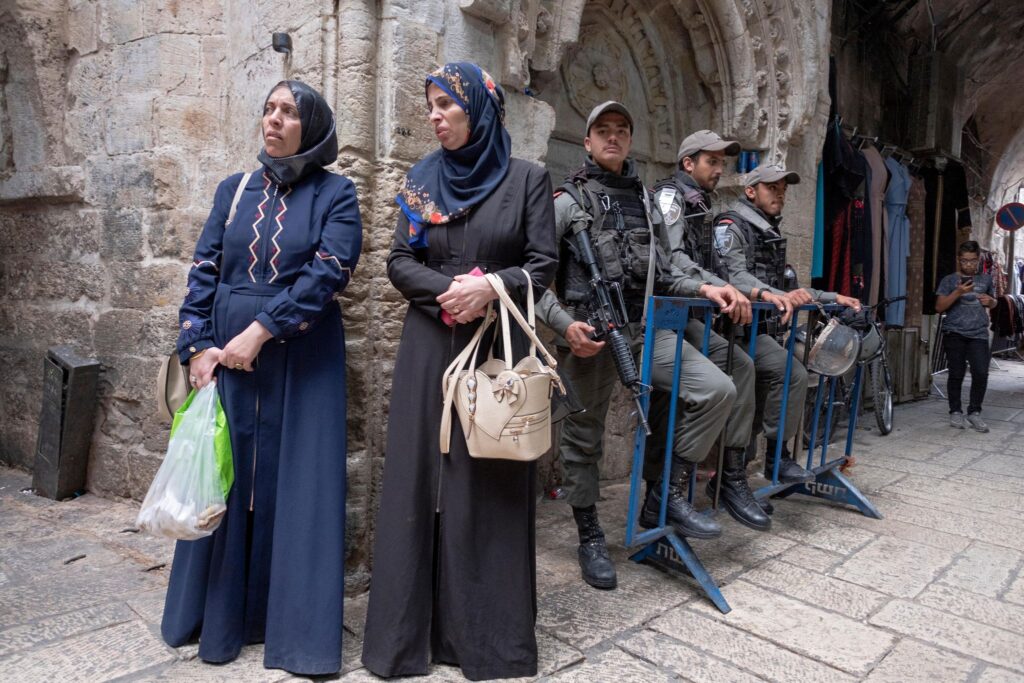
This stems in part from some Israeli Arab politicians who, though highly successful in their Knesset careers, refuse to recognize the legitimacy of the state and are often seen as supporting terror. Their hostility to Israel is all the more jarring given Israel’s recent normalization agreements with four Arab countries. Many Arab Knesset members routinely accuse Israel of racism, fascism and apartheid.
My proposed New Deal provides a way out of this impasse. The country would not merely condemn discrimination against its Arab citizens but publicly declare war on it. This means robustly fighting racism in every facet of society. It means setting as a national goal the full social, economic and educational integration of Israeli Arabs into the mainstream by 2048. The battle—to paraphrase Winston Churchill—must be fought in the media, the classroom, the workplace, the Knesset and the courts. Tougher laws against bias must be passed and diversity assured in hiring and professional advancement. A Ministry of Social Equality must be created.
READ MORE: MICHAEL OREN, NOVELIST
For their part, Israeli Arabs would accept their minority role in a Jewish nation-state and view themselves as citizens with equal duties, including national service. It does not mean that Israeli Arabs would have to give up their Palestinian identity, but it would require them to condemn terror, uphold Israel’s right to self-defense and reject the Boycott, Divestment and Sanctions movement against Israel. Above all, it would mean loyalty to the state. If British Jews can salute the Union Jack with its three crosses, Israeli Arabs can show the same respect to the Magen David.
Looking outside of the state, how can Israel guarantee strength and unity in its relationship with Diaspora—especially American—Jews?
Those ties have proven vital throughout Israel’s history, helping to build the state’s institutions and infrastructure and to reinforce its security. Through their contributions and investments, Diaspora Jews account for 6.5 percent of Israel’s annual GDP, the equivalent of the country’s defense budget. Israel, in turn, has provided inspiration and pride for the vast majority of Jews outside its borders and has represented a central source of their Jewish identity. Yet that sacred nexus is today threatened by deepening Israeli indifference to Diaspora realities, typified by the state’s refusal to recognize the liberal religious movements. At the same time, important segments of Diaspora Jewry have grown distant from Israel. Some of that alienation, particularly among younger generations, stems from Israel’s policies toward the Palestinians and its opposition to the Iran nuclear deal.
Strategically crucial to assuring American military and diplomatic support as well as international backing generally, the Israel-Diaspora relationship is also a spiritual imperative. Preserving it is a paramount Zionist responsibility. Israel must live up to its claim to be the nation-state of all the Jewish people and recognize the major Jewish movements. Israel needs to forge its own definition of Jewish identity that stresses peoplehood, common values and destiny. A national conversion process must be created and made available to Israelis and foreigners alike. And Israel must accept Diaspora life as a valid Jewish choice.
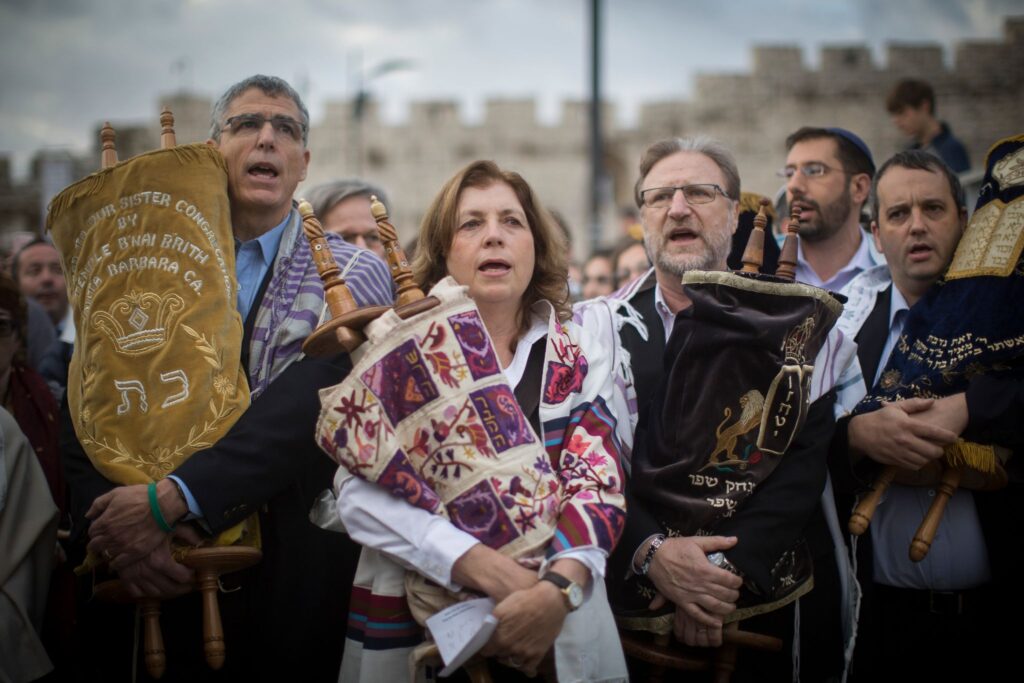
Diaspora Jews, in turn, must view Israel as a primary partner in assuring Jewish continuity and making aliyah as a positive choice. They must pledge to uphold Israel’s security, its legitimacy and its right to exist as the sovereign Jewish state. The teaching of Hebrew, the Jewish lingua franca, must be vastly expanded.
Israel’s centennial should be marked by the signing of a new covenant between Israeli and Diaspora leaders, a reinforced bond based on mutual respect and interdependency. Together, we must increase our investment in Jewish day schools and other centers of learning, and we must foster a renewed sense of oneness.
The role of the IDF, ensuring the rights of Israeli Arabs and Diaspora-Israel relations are just three of the many subjects being explored by Israel 2048. Others include the health care and educational systems, foreign policy, urban planning, national infrastructure and the relations between religion and state. Some topics, such as the challenge of Israel’s ultra-Orthodox communities and of peace with the Palestinians, are highly controversial, but in preparing for Israel’s future, no issues can be overlooked. All need to be openly discussed in town hall and parlor meetings, in community centers, synagogues and pre-army high school programs.
That is the purpose of Israel 2048, to get all Jews talking about today’s problems and their hopes for tomorrow in order to realize a common vision. To rekindle the excitement once felt by our founding mothers and fathers in imagining Jewish sovereignty. These conversations will influence decision-makers and community leaders both in Israel and abroad and help lay the foundations for necessary change. That is our Zionist responsibility. The success of our second century depends on it.
Michael Oren, formerly Israel’s ambassador to the United States, Knesset member and deputy minister in the Prime Minister’s Office, is the author of The Night Archer and Other Stories and the just-published novel, To All Who Call in Truth. For further information about Israel 2048, write eldiovits@gmail.com.










 Facebook
Facebook Instagram
Instagram Twitter
Twitter
Ruben Rosental says
Excellent article Michael, wishing that your words will resonate in the ears of every Israel lover.
Max Maengkom says
We love Israel. We are from North celebes Manado Indonesia